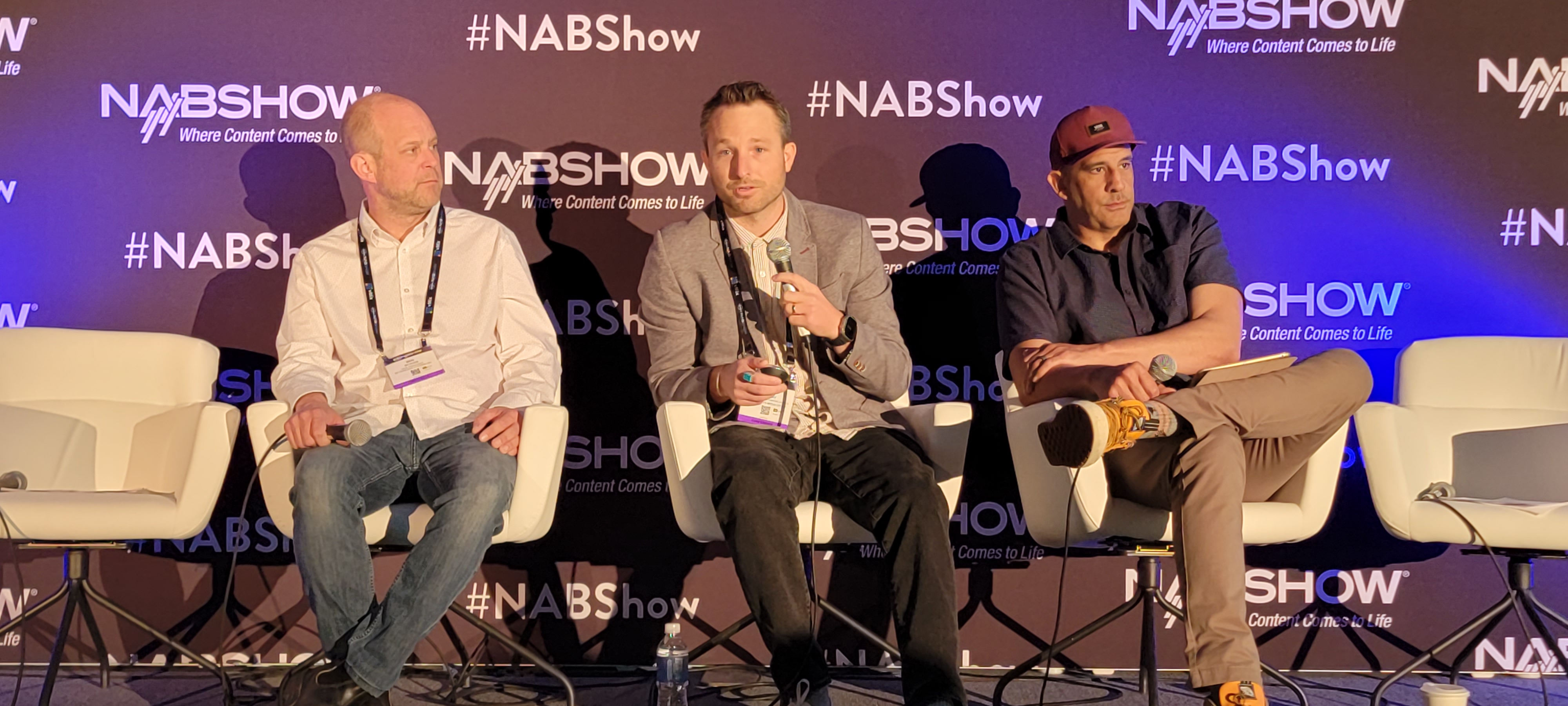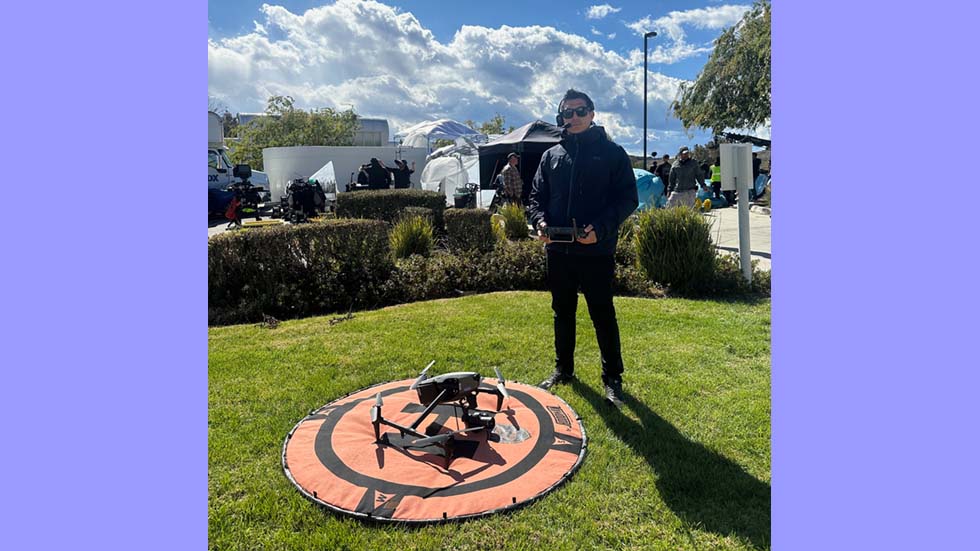Racing Drones Bring ‘Video Game Perspective’ to Live Snowboard Competition
How Uncle Toad’s Media Group tackled the 'Natural Selection Tour'’s coverage from Canada

LAS VEGAS—Imagine flying behind 12 of the world’s top snowboarders as they make dangerous, remote runs through deep, fresh powder in the mountains around Revelstoke, British Columbia, Canada, and doing it live with cinematic flair. That was the vision Uncle Toad’s Media Group brought to the production of the Natural Selection Tour, a demanding backcountry snowboarding competition through some of the most challenging terrain imaginable.
Jordan Velarde, Uncle Toad’s founder and executive producer; Chris Steblay, also an executive producer and creative director at the media group; and Ben Boriss, vice president at RF Wireless Systems, discussed the production during their “Racing Drones and Live REMI Production” session at the NAB Show in Las Vegas last week.
“We kind of invented a lot of ways of doing things because—for lack of a better term—we didn’t know any other way to do it,” Steblay said.
Potential Dangers
In practical terms, that meant modifying airborne racing drones to capture 1080p 59.94 stabilized video of snowboarders from above and behind the athletes as they made their way down the mountain.
It also meant setting up a base of operations 20 miles from civilization in snow that in places was waist-deep, beaming live video via satellite to a centralized production control room in Santa Monica, California, for a classic remote integration model (REMI) production.
The remoteness of the location required all video gear and crew to get to the site via helicopter, Steblay said. The potential danger of the surroundings also required those on-site to don avalanche survival gear, he said.
“When we first started visiting some of our locations, we realized you’d need 50 cameras,” Steblay said. “You’d have to fly in trucks … [and] drop them in in the summer. The budget did not allow for us to cover it like we would all be used to.”
Get the TV Tech Newsletter
The professional video industry's #1 source for news, trends and product and tech information. Sign up below.
“We really wanted to bring that big show to the mountain, so that’s where we kind of realized we needed to be wireless,” he said. “We could do a small setup on the mountain and transmit to an area where we can do the production.”
Maintaining wireless connectivity with the drones to transmit live video from the aircraft was particularly challenging.
“My mind was really kind of blown for a long time while I was really trying to understand the vision,” Boriss said.
Two Different Drones
Using drones to follow the snowboarders on a field of play that was massive, delivering live video from wherever they went, combined with the presence of snow-covered treetops, boulders and other obstacles, compounded the challenge of the project for RF Wireless systems, he said.
Uncle Toad’s had a total of six racing drones prepared for coverage. At any given time, one was in the air and two others were flight-ready to take over in the event the drone in use was lost.
The company developed two different types of drones. One was a heavy payload model for the “gimbalized” lens drone. The most recent iteration of that drone was a DJI Inspire drone. The other type was the racing drone, Steblay said.
The biggest challenge the REMI team in Santa Monica faced was getting connected to the Uncle Toad’s crew in the mountains, said Velarde.
“Usually, when we go to a venue, if there is a problem I’ll run to Ben at the venue and talk to him,” he said. “But we had to wait each morning for them to get to the location, for them to fire up the satellite, for them to then check all of the audio paths. … We had to go through that checklist before we could even talk to them.”
While a challenge, it worked well, enabling Velarde to speak with the team on the mountain “like they were in the other room,” he said.
The REMI production created another challenge for Velarde and others in the production control room: They had no firsthand knowledge about the layout of the field of play.
“Our true understanding of the venue—I saw what you guys saw,” Velarde said, alluding to those attending who watched clips of the production during the presentation. “It was a challenge to really understand it.”
© NAB 2023
Phil Kurz is a contributing editor to TV Tech. He has written about TV and video technology for more than 30 years and served as editor of three leading industry magazines. He earned a Bachelor of Journalism and a Master’s Degree in Journalism from the University of Missouri-Columbia School of Journalism.

